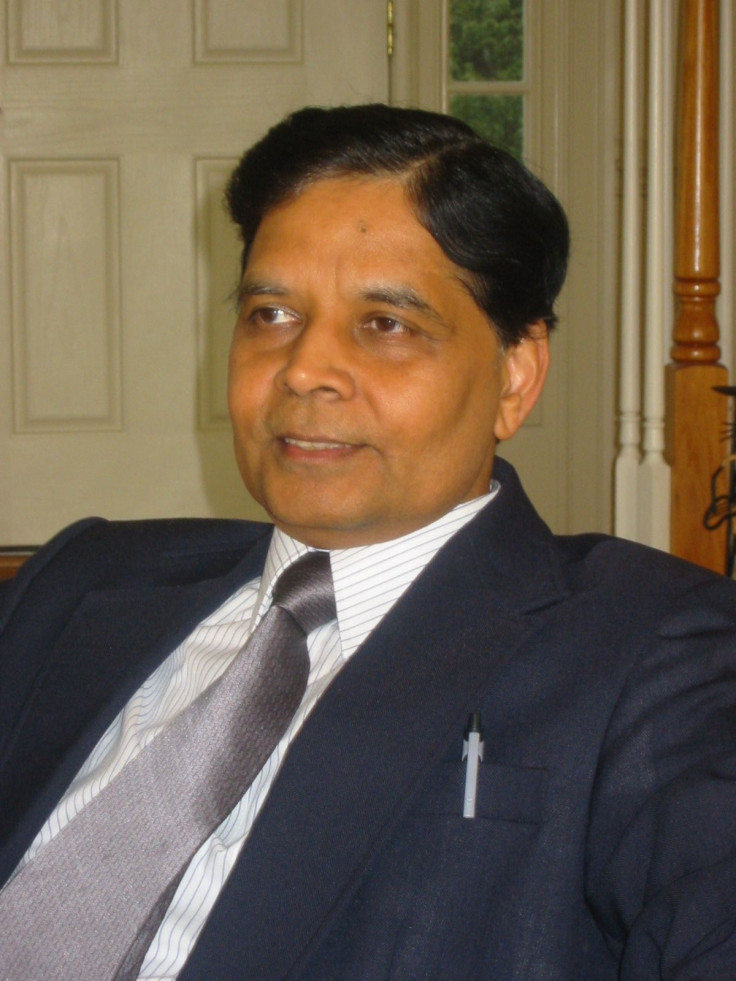India's New Economic Think Tank, NITI Aayog, Lacks Clarity Of Purpose

Even as the Indian government on Monday announced the appointment of Columbia University economist Arvind Panagariya as the first vice-chairman, or the executive head, of its new policy think tank NITI (National Institution for Transforming India) Aayog, there was little clarity on how the new organization would differentiate itself from the 65-year-old Planning Commission of India it now replaces.
India on Thursday replaced the Planning Commission with a new think tank, officially bringing to an end a socialist planned model of development that was put in place under the country's first prime minister, Jawaharlal Nehru, in 1950. Ever since India started liberalizing its economy in 1991, it had begun discarding long-term economic planning in phases.
Panagariya, the protege of another India-born professor at Columbia, Jagdish Bhagwati, has been a free-market economist, and reportedly a supporter of the so-called ‘Gujarat model of growth’ championed by India’s Prime Minister Narendra Modi while he was the chief minister of the western Indian state of Gujarat. Panagariya was earlier the vice-chairman of the economic advisory council of the state of Rajasthan, and was reportedly instrumental in ushering in key labor reforms in that state last year. Both Gujarat and Rajasthan are governed by Modi’s Bharatiya Janata Party. Panagariya did not respond to an email query seeking comment.
Interestingly, Panagariya replaces another free-market economist, the Oxford-trained Montek Singh Ahluwalia, who, between 2004 and 2014, was the deputy chairperson of the now scrapped Planning Commission under the premiership of Manmohan Singh of the Congress party, another Oxonian, who had himself held the same post between 1985 and 1987.
India’s prime minister was the ex-officio chairman of the Planning Commission and will continue to head the NITI Aayog.
“At the moment, the way it has been structured, it includes some basic elements of the Planning Commission, with more focus on research,” N R Bhanumurthy, a professor at the New Delhi-based National Institute of Public Finance and Policy (NIPFP), told International Business Times. “It is trying to be more of a think-tank rather than just another government body.”
The NITI Ayog “will provide Governments at the central and state levels with relevant strategic and technical advice across the spectrum of key elements of policy,” the government had said, adding that it will “provide a framework ‘national agenda’ for the Prime Minister and the Chief Ministers to provide impetus to.” The government had further said that the new organization, which seeks to provide greater participation to all of India’s federated units in its economic development, would also form regional councils within itself “to address specific issues and contingencies impacting more than one state or a region.”
Although the move to close down the Planning Commission is meant to end a decades-old development model, which involved framing and implementing economic plans every five years with little flexibility for course correction, it is unclear what will come in its wake.
The lack of clarity on the mandate and scope of the new policy think tank was, in fact, curiously highlighted in a blog post in The Economic Times by Cambridge-trained economist Bibek Debroy, just hours before his own appointment as one of the two full-time members of NITI was announced by the government. Debroy too did not respond to an email query seeking comment. The other full-time member would be Vijay Kumar Saraswat, who has in the past headed India’s Defence Research and Development Organisation, and is credited with the development of India’s missiles.
Debroy said in his blog post that the Planning Commission’s role wasn’t simply restricted to planning. "There is no doubt that this role is completely dysfunctional in this day and age. Until government systems are completely revamped, there is a Plan versus non-Plan distinction in expenditure, not quite the same as the revenue versus capital distinction,” Debroy noted, adding that the Planning Commission wasn’t a constitutional body nor was it set up through legislation. "Therefore, it wasn’t accountable, at least not to Parliament. How is it obvious that Niti Aayog is best set up executively, rather than through a specific piece of legislation?”
Debroy wrote that there is a multiplicity of objectives of the NITI Aayog. "There is a secretariat function for NDC (National Development Council). There is the Inter-State Council. There is something akin to a National Advisory Council (NAC), in the so-called think tank role. By bundling all of these together, the proposed structure of Niti Aayog seems to have become unnecessarily cumbersome and complicated," he noted, adding that "the Cabinet Resolution doesn’t inspire a great deal of confidence. Since there was such a great deal of discussion and debate before Niti Aayog was set up, I had hoped the answers to these seven questions would have been provided. If they have, I have clearly missed the answers.”
According to Bhanumurthy, the new organization would fulfill a critical gap in India's economic policymaking -- the lack of a good government-controlled economic research arm.
“Some other governments have better research capability with themselves. In India, only the Reserve Bank of India has its own expertise, and there is continuity, but apart from that, there is no continuity of research within the government. The reformed institution is expected to balance both the growth as well as social sector, so we will have inclusive growth, rather than just talking of Nehruvian socialism,” Bhanumurthy said.
© Copyright IBTimes 2024. All rights reserved.











